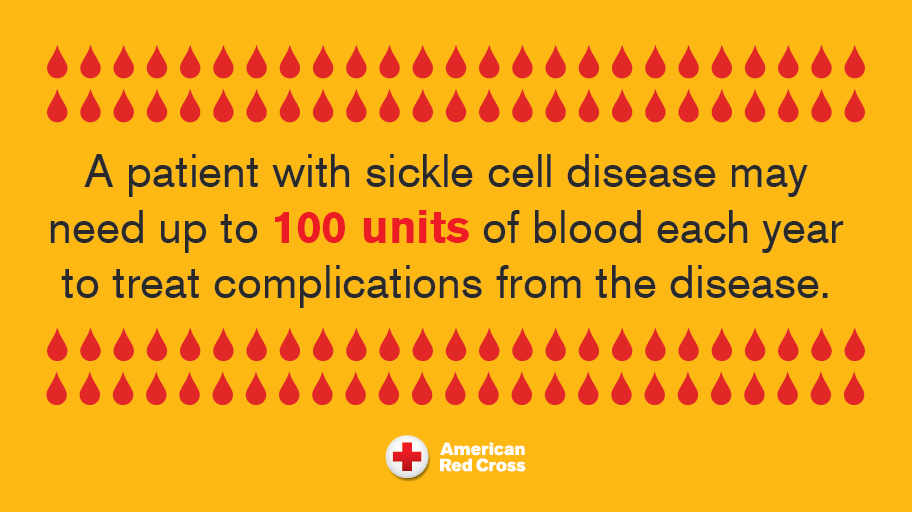DISCLAIMER
The information and materials accessed through or made available for use on any of our Sites, including, any information about diseases, conditions, treatments, or medicines, are for informational purposes only. The Content is not intended to be and is not a substitute for professional medical advice, diagnosis, or treatment, and your participation on our Sites does not create a healthcare professional-patient relationship. You should consult a doctor or other qualified health care professional regarding any questions you have about your health or before making any decisions related to your health or wellness. Call your doctor or 911 immediately if you think you may have a medical emergency.compose your message
message sent
email sent successfully
Trusted Resources: News & Events
Latest announcements and gatherings
September Is Sickle Cell Awareness Month: Bringing Attention to This Disease and Why Blood Donations Are Vital for Those Battling It
September is Sickle Cell Awareness Month, a time to highlight how this often-invisible and rare disease impacts over 100,000 people— most of whom are of African descent and will require regular blood transfusions to help manage their disease. Despite the discovery of the disease has taken place more than a century ago, there has been limited research and few treatments to date to help those suffering from sickle cell crisis, a troubling legacy of neglect for rare diseases—especially those that primarily affect individuals who are Black.
Kick-off this month with a lifesaving blood donation. The Red Cross urges eligible individuals who are feeling well to please make an appointment today by visiting RedCrossBlood.org, using the Red Cross Blood Donor App, or calling 1-800-RED-CROSS.
The health and safety of everyone attending Red Cross blood drives across the country is a priority, especially as COVID-19 cases are surging again. As such, the Red Cross resumed requiring all blood donors, staff, and others at our blood drives and donation centers to wear face masks regardless of their vaccination status on Aug. 9. Individuals who have received a COVID-19 vaccine are still eligible to donate blood and platelets. Knowing the name of the manufacturer of the vaccine they receive is important in determining blood donation eligibility.

 +myBinder
+myBinderRelated Content
-
news & eventsPatients With Sickle Cell Disease may Have Lower Risk for C. DifficileFindings from a retrospective cohort stu...
-
people & placesSuzanne Saccente, MDDr. Suzanne Saccente received her medica...
-
people & placesIsaac Odame, MB ChB, MRCP, FRCPath, FRCPCH, FRCPCDr. Isaac Odame is a staff physician and...
-
videos & visualsTrick-or-Treating Tips for Kids With SCD!https://www.onescdvoice.com/wp-content/u...
-
education & researchQuality of care in sickle cell disease: Cross-sectional study and development of a measure for adults reporting on a...Documented deficiencies in adult sickle ...
-
news & eventsKNOWvember Webinar: A grandparent’s voice – Advocacy and support for chronic pain familiesWhile parents are often the prim...
-
education & researchAssociation Between Hospital Admissions and Healthcare Provider Communication for Individuals With Sickle Cell Disea...Objective: To test the hypothesis that ...
send a message
To improve your experience on this site, we use cookies. This includes cookies essential for the basic functioning of our website, cookies for analytics purposes, and cookies enabling us to personalize site content. By clicking on 'Accept' or any content on this site, you agree that cookies can be placed. You may adjust your browser's cookie settings to suit your preferences. More Information
The cookie settings on this website are set to "allow cookies" to give you the best browsing experience possible. If you continue to use this website without changing your cookie settings or you click "Accept" below then you are consenting to this.
Support for this site is provided by

This platform is made possible through a partnership with the Sickle Cell Disease Association of America, Inc. (SCDAA) and its member organizations. SCDAA's mission is to advocate for people affected by sickle cell conditions and empower community-based organizations to maximize quality of life and raise public consciousness while advancing the search for a universal cure.




